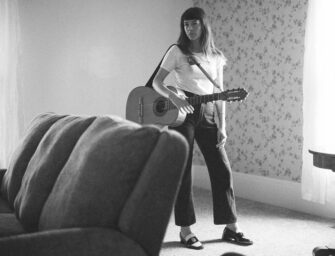
Petula Clark and Tony Hatch
How the prolific songwriter-producer helped define 60s pop music with Petula Clark and The Searchers… and wrote the Neighbours theme
 rom pop music to the stage and TV to film, Tony Hatch is a songwriting legend. Not only did he help to define popular culture throughout the 1960s, penning some of the world’s most loved songs, but he’s also written the music to songs that have become timeless. His theme tunes for television include Crossroads, Emmerdale and Neighbours. For the stage he wrote the music for The Card and Rock Nativity and for the world of pop he created the songs Downtown, Call Me, I Know A Place, Joanna, I Couldn’t Live Without Your Love, Colour My World and many more.
rom pop music to the stage and TV to film, Tony Hatch is a songwriting legend. Not only did he help to define popular culture throughout the 1960s, penning some of the world’s most loved songs, but he’s also written the music to songs that have become timeless. His theme tunes for television include Crossroads, Emmerdale and Neighbours. For the stage he wrote the music for The Card and Rock Nativity and for the world of pop he created the songs Downtown, Call Me, I Know A Place, Joanna, I Couldn’t Live Without Your Love, Colour My World and many more.
We caught up with Tony relaxing in Menorca, his home since 1995, as he prepared for the A Life In Song performance at the Royal Festival Hall. This would be a one-off show celebrating his illustrious career as a songwriter and producer, with special guest performances from Petula Clark and several names from the modern pop world, including Rumer and Joe McElderry…
What made you decide to do the A Life In Song concert now?
“One of the reasons for doing this show was because there are some really fascinating stories behind the songs and it’s interesting how some of them almost struggled to be born. Some of them were lovely songs and were recorded, but then had a huge problem getting them released. Every song has got a story – some of them are long and complicated, and some are very quick.”
So how did your story as a songwriter begin?
“I can’t remember a life without music. I was born in 1939 and so within a year my father was away and spent the next 5 years fighting in the war, so I spent the war years with my mother and like many homes at that time we had a piano, a radio and a wide-up gramophone. My mother loved music – she liked the classics and jazz, and played the piano. She inspired me so that by the age of four I was playing little tunes, and a few years later I was making up tunes to play on the piano.”
[cc_blockquote_right] I WAS 18 YEARS OF AGE WITH MY FIRST INTERNATIONAL HIT… THEN MY CALL-UP PAPERS ARRIVED! [/cc_blockquote_right]
Can you remember the first song you wrote?
“I was in a choir school, and therefore I was heavily into the church organ music, so the first thing I probably wrote was a hymn tune. I think I took the text from the Bible. The school encouraged me to write and I really enjoyed those senior years, but by the time I left at the age of 16 I knew that I wanted to be in popular music, and the only way I could think of doing that was to get a job in a music publishers. I got a very nice job making the tea, doing the filing, running the errands and, whenever any artists came in, I would sit down and play the piano for them. Lots of songwriters started out in the mailroom or the trade department and, in those days, sheet music was very big. So if you played piano, you were one step ahead and that’s how I managed to get my job.”
Were you part of the Tin Pan Alley era then?
“It was as close to Tin Pan Alley as you could get – it was a lane called Denmark Place that runs behind Denmark Street. In those days, the publishing fraternity was split between Denmark Street and Charing Cross Road, and the other lot were the Chappell group of companies over in Bond Street and Maddox Street.”

Frank Sinatra and Tony Hatch: “I had 16 songs written for him and he was going to do a new version of Downtown.”
What was your big break?
“One morning I turned up at the office and nobody else was there, apart from Dick Rowe from Decca. So I said, ‘I’m sorry my boss isn’t here but I know what he wanted to play, so I’ll play them on the piano to you.’ Then when I’d finished, I asked if I could play one or two of my own songs. So I played him a song called Crazy Bells and he liked it and ended up recording it with Gerry Dorsey [who became better known as Engelbert Humperdink]. Then, when Dick Rowe was offered the opportunity to start a new record company for the Rank Organisation, he offered me a job as his assistant. So about the age of 18 I joined Top Rank Records, which gave me the opportunity to learn how to produce records and they also had a music publishing company called Film Music.
Were you writing music for films then?
“I wrote a song called Follow A Star that was pitched for a Norman Wisdom film, but he turned it down because he wanted to write his own song. But they changed the title and pitched it for another film, so it was changed to Look For A Star and it ended up as the featured song in a film called Circus Of Horrors. We recorded it with a young singer called Gary Mills and it became a hit all over the world. So there I was at 18 years of age with my first international hit!
[cc_blockquote_right] WHEN I’M WRITING THE SONG I’M THINKING OF RHYTHMS AND THE WHOLE FEELING [/cc_blockquote_right]
“But there I was just getting into the music industry, then my call-up papers arrived. Rather than do two years in National Service, I applied to do three years with the Band Of The Coldstream Guards, and they took me on as a pianist, arranger and music compiler for the marching band. They ‘consumed’ music so I was forever re-copying march cards and parts for the concert orchestra, and inbetween that I fitted in writing songs. Unfortunately within 18 months Top Rank Records folded, but I got a call from Pye Records asking if I could join them when I left the army.”
Did that discipline help instil a work ethic to your songwriting?
“It’s noticeable in my later life, I’m much better when writing to order. Whether it’s a film, or theatre piece or stage musical, I can really churn them out. Neighbours is a classic example: I was living in Australia when I got the call from the producer Reg Watson, and even before the phone call had finished I’d jotted down the first notes of ‘Neighbours, everybody needs good neighbours’. He was describing to me Ramsay Street and all the various story-lines, and I just sat there with half my mind on what the tune was going to be!”
Would you call yourself a prolific writer? Do you just write as many songs as you can and then pick the best ones?
“Well, there has been times and years when I have been guilty of churning them out. In the 60s, because I’d had some success, everybody wanted one of my songs!”
We noticed you’ve written under various pseudonyms, like Mark Anthony. Why was that?

Tony Hatch
“My managing director at Pye said, ‘since your job is firstly as a record producer, I don’t want any complaints that you’re pushing your own songs, so write under a nom de plume.’ But of course, as soon as I’d had some success, it didn’t take long for the New Musical Express to discover the true identity of Mark Anthony! So it was all a waste of time anyway.
“The reason for using Fred Nightingale for Sugar And Spice, was because I wanted to hide it from the Searchers that I’d written the song – I didn’t want them to think I was jumping in on their bandwagon. They say now that they’d always known I’d written it, but they played along!”
Do you see production and songwriting as two separate stages, or is it part of the same process, as far as you’re concerned?
“I haven’t produced a lot records I didn’t write. I more enjoy producing my own things, because when I’m writing the song I’m thinking of rhythms and the whole feeling of the song. I’ve done a lot of arrangements and production of other people’s songs, especially Petula Clark – I did everything. In the 60s, she was very big in France, Italy, Spain and Germany, so I was doing all that record production as well. She was writing a lot with French writers, so I’d get the opportunity to do the English lyrics, but my first job was to put the orchestra together, do some arrangements… There was a lot of work there.”
You’ve had such a long and successful career, I imagine you could quite easily retire and never write a song again. But is that impossible, do you still work in music?
“We have a big catalogue to look after now. I enjoy the relaxation, a little bit of golf and going out on the boat, but I also enjoy the music business very much. And because of the A Life In Song show, I’ve realised I’ve got to write all this down and turn it into a book – there are lots of stories. I worked with Frank Sinatra for a long time, hoping he was going to record an album of my songs. I had 16 songs written for him and he was going to do a new version of Downtown.”
Interview: Aaron Slater




































Related Articles